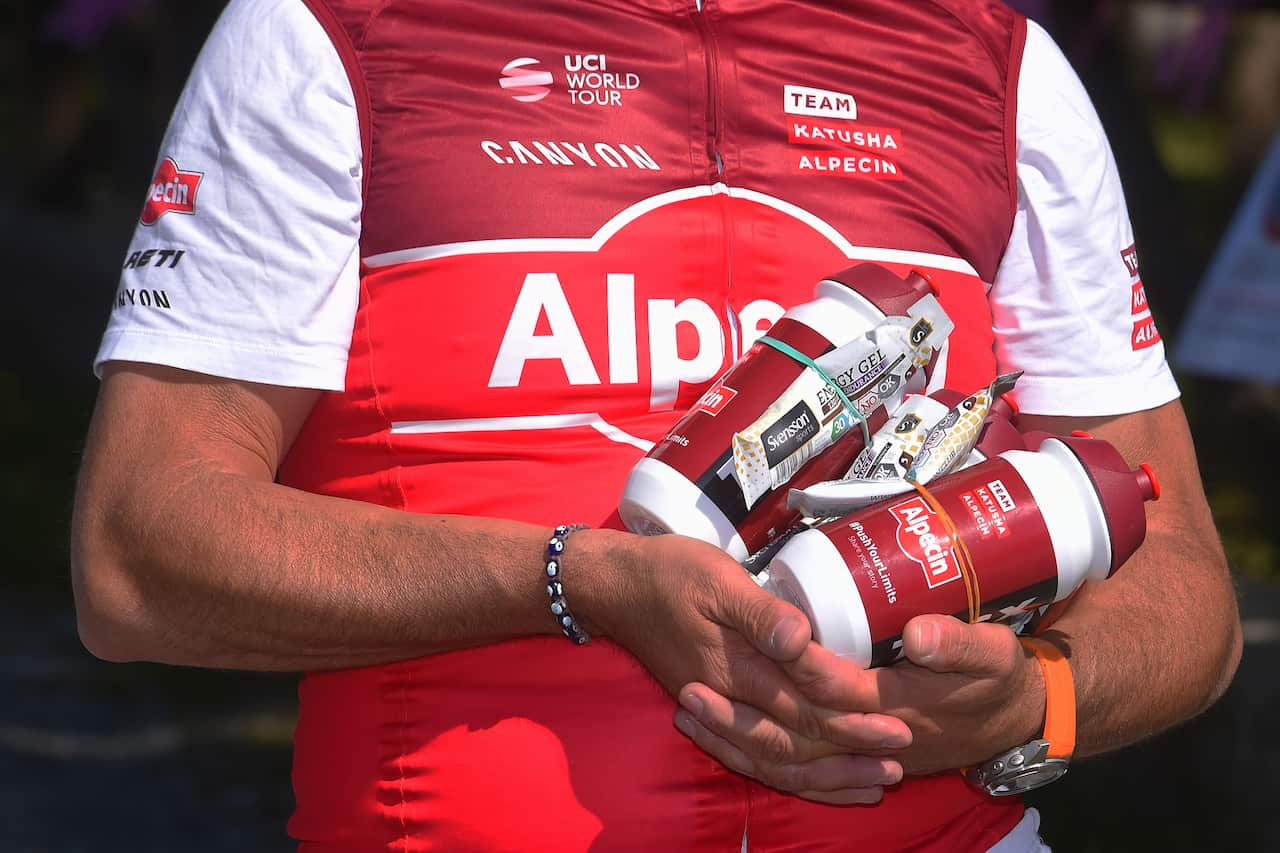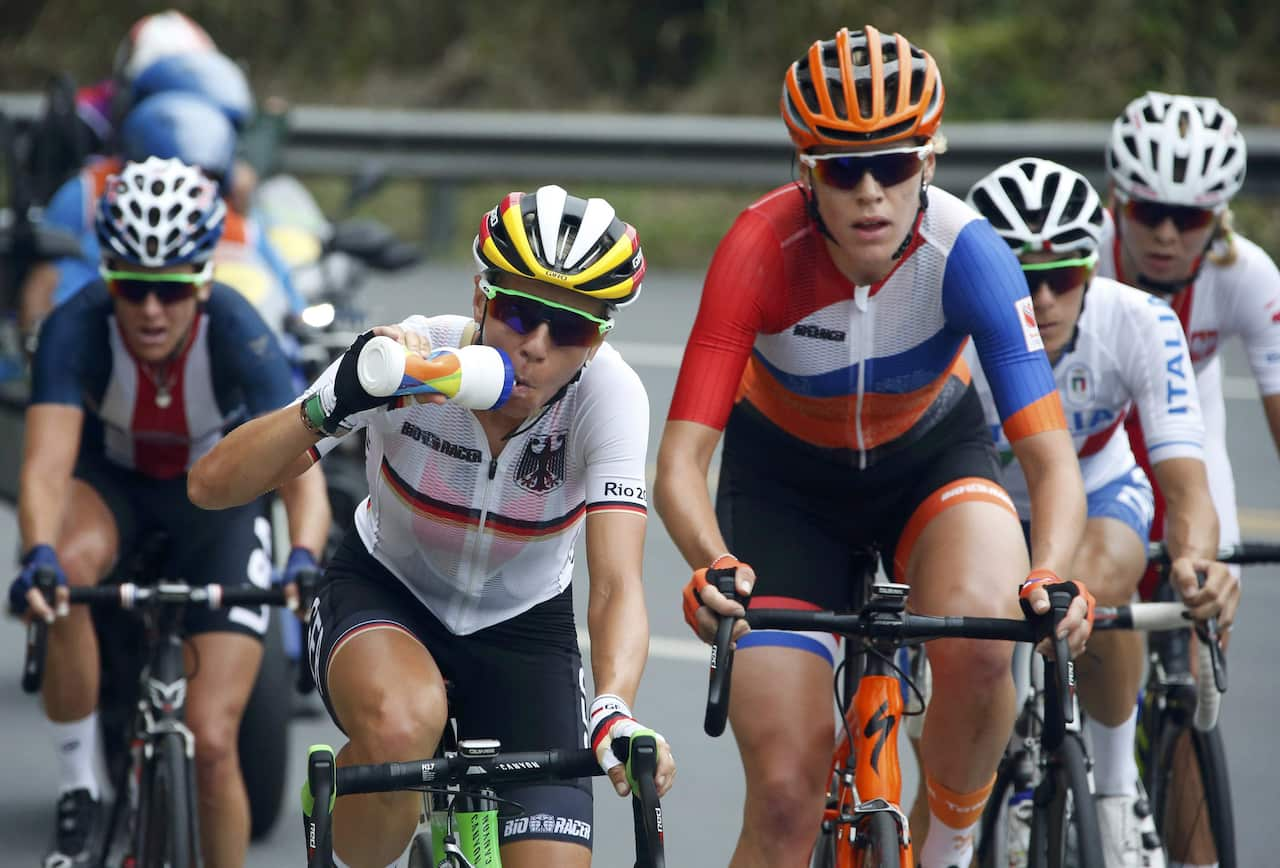Given the positive response to our previous interview with Rebecca Hay from The Athlete’s Kitchen on nutrition strategies for between rides, a follow-up interview about on-bike nutrition was an obvious choice. As I wrote in the earlier article, and as you’ll see again below, Hay has a remarkable knack for giving smart, practical advice, that's easy to incorporate into our daily cycling lives.
in case you missed it

Finding form: off-bike nutrition advice for every cyclist
With L’Etape Australia’s start gun going off in a few days’ time, it’s a little late to dial any new nutrition strategies in training for this particular event. But it’s never too late to start planning for future events, for building confidence in personal nutrition strategies that have been developed so far or reminding yourself how important it is to implement them.
Enjoy the read. And enjoy planning how to pack your pockets before your next long ride. Your legs will certainly thank you, and your motivation and energy levels half way up a challenging hill climb will thank you too.
What are some of the common mistakes you see cyclists make regarding eating and drinking on the bike?
Quite often they start eating and drinking too late into their ride. Most often riders tell me this happens when the ride takes off so fast they cannot take their hands off the bars to drink or get food from their pocket. I suggest that eating and drinking start in the first 45 minutes to keep energy levels topped up. Small amounts of a carbohydrate-rich food and small amounts of fluid regularly.
Lack of planning is another one; not having a concept of how much they need to drink or how much they need to eat. Needs do change depending on the intensity of the ride, distance to be covered and how fit a rider is.
Those that are planning to race a longer distance should have practised eating and drinking routine in advance of their event. I don’t recommend having a plan and not implementing it until the day of an event! The plan usually fails if this is the case.

Be like the pros and attach gels to your biddons. But practice pulling the gels off the biddon before you try it in a bunch (Getty Images) Source: Getty Images
How do our energy and hydration demands change with rides of longer than two hours compared to shorter rides?
I always ask riders the purpose of particular rides if they are asking about if they should eat and drink. You can get by on a recovery or an endurance paced ride with only fluid if a ride is less than two hours. The body has a limited capacity to store glycogen and this does become depleted after two hours. Glycogen is not just for muscle function, it is for your brain as well.
If rides are high intensity or are focused on performance a rider should consume some food or energy-containing fluid before they ride. What riders choose to eat should be a good source of carbohydrate and not too high in fibre, protein or fat to allow for rapid digestion and absorption.
Apart from not hunger bonking and creeping home at the end of a long ride, what are some of the more subtle differences to performance and enjoyability that come with good on-bike nutrition habits?
Being able to concentrate, maintain good form and change pace are some other benefits of good fueling habits. Dehydration causes power output to decrease, reaction time to slow, ability to absorb food and fluid to decrease and endurance to decrease. This all happens before you bonk!
Good fueling will help a cyclist’s ability to stay in touch with a bunch when they accelerate or head up a climb.
While individuals vary highly in regards to nutrition needs and personal preferences or tolerances, can you suggest some broad rules to follow for a long ride eating and drinking plan that might help readers start to learn what works best for them?
Anyone planning to race or do long rides should have a concept of how much fluid they need to drink. There is no blanket rule that can be applied as sweat ranges vary from person to person and vary with different weather conditions and intensity of activity.
Food is a little simpler. As a general rule, 60gms of carbohydrate can be absorbed each hour, no matter how big or small you are. Taking on more than this can lead to stomach upsets. There are cases where more energy can be consumed, but food and sports product choices need to be more specific.

Factors such as ride intensity, ride duration, fitness and how much you sweat impact how much you need to hydrate. Trixi Worrack takes a drink at the Rio Olympics (Getty Images) Source: Getty Images
While gels and energy drinks can be a lifesaver out on the road or the trails, what are some less artificial options that are yummy and easy to digest too?
Water is the simplest choice for rehydration. Pairing it with a salty snack can help to increase absorption of fluid.
Sandwiches are also a great choice for on-bike food. White or wholemeal bread is a good option here as it is rapidly absorbed. Top it with jam, honey, peanut butter or vegemite. Bread is a great source of salt, so it can aid in replacing sodium from sweat losses. A sandwich (with two slices of bread) gives you the same amount of carbohydrate as a gel.
I am a big fan of a Promite sandwich: make it (with no spread other than Promite), flatten it and cut into four. I always wrap bars, rice cakes or sandwiches in foil as they are easy to unwrap and re-wrap with one hand.
There are some really great recipes around for rice cakes and simple bars too. I recommend the Feed Zone Portables or Velochef recipe books for ideas that are really easy for the bike. Nothing wrong with a banana either!
Anything else you'd like to add? Or that you wish the riders you see out on the road were more aware of in the spirit of better ride experiences, more often?
Just that riders need to test things out, and practice their routine on their training rides. This is so important, especially if they are planning to race, ride in Gran Fondo style events or do multi-stage races.
Also, be aware that in endurance events in particular, what the body wants and what it needs can be poles apart at times. So another piece of advice is that if your body is telling you to back off with food and fluid, listen! Sometimes the digestive system needs a little time to catch up.
*
The intention of this article is not to solve every cyclist’s nutrition needs in 1000 words or less, but to help riders to reflect on their own nutrition strategies for long rides and events. If you feel you’d benefit from more personal advice, it’s certainly a worthwhile thing to do. For Sydney or Hobart based readers, more information on The Athlete’s Kitchen and their range of services can be found here.
other recent articles in this series

Finding form: why smiling improves your bike handling skills
Share
Watch the FIFA World Cup 2026™, Tour de France, Tour de France Femmes, Giro d’Italia, Vuelta a España, Dakar Rally, World Athletics / ISU Championships (and more) via SBS On Demand – your free live streaming and catch-up service. Read more about Sport





